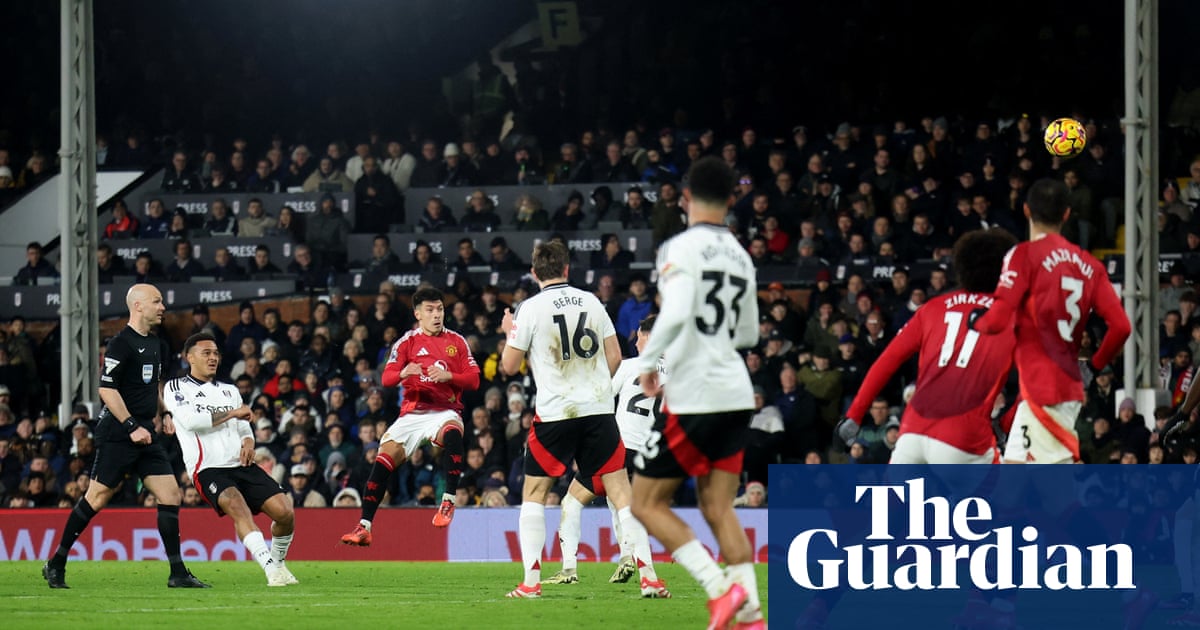
Only a few hours after her first grand slam final had come to an end in 2017, while she was still trying to process falling short of achieving her ultimate dream, Madison Keys was asked to consider what she could have done differently during her time on court. She responded, smiling, without hesitation: “Win some more games.”
Her comments were a fair reflection of a brutal 6-3, 6-0 loss to Sloane Stephens in the US Open final. Keys has had to accept that she badly failed to handle the pressure of the occasion. “I’ve obviously thought of that match endlessly for the past eight years,” says Keys.
“I think, during that match, I was so consumed with being nervous and the moment and the opportunity and all of that, that I never really gave myself a chance to actually play.”
Even as she processed such a painful defeat, Keys had good reason to believe that more opportunities would quickly follow. She was still only 22 years old and reaching the final was a significant step forward. Instead, while she has enjoyed a career that most players can only dream of, for so long she has been unable to scale those heights again. In the intervening years she has gained a reputation for an inability to manage the stress of the biggest moments.
As Keys, 30 next month, burst through those mental barriers with a spectacular win over Iga Swiatek on Thursday, she is finally back in a grand slam final little more than seven years after her first. No other player to make two or more grand-slam final appearances has ever had such a large gap between their first and second.
Keys’s journey from Rock Island, Illinois has been particularly fascinating. She was a child prodigy who became one of the youngest female players ever to win a WTA match, at 14 years old in 2009. During her early years she heard from so many people that she was destined to win grand slam titles.
“There have been periods of my career where it felt like if I didn’t win one, then I hadn’t done enough, and I didn’t live up to my potential in all of that,” says Keys. “I think that kind of took a lot of the fun out of the game, and there were times where it felt paralysing out on the court because it felt as if I needed it to happen instead of giving myself the opportunity to go out and potentially do it.”

This stretch of success has been driven by her willingness to embrace change so deep into her career. During the off-season, Keys began to look for a new racket, which led her to end her longtime collaboration with Wilson in favour of Yonex. She is now coached by her husband, the former ATP No 99 Bjorn Fratangelo, who helped to guide her through changes to her equipment and game.
“I’m at the later point of my career,” she says. “It just kind of felt like, why not, however many more years I have, be willing to adapt and be a little bit more open to change? I think doing that is a little bit freeing because I think for a really long time I felt like I was so close doing it a certain way. I kind of just kept falling short. But in my head it was: ‘If I just keep doing it that way, maybe it will happen.’ I started putting a lot of pressure on myself within that.”
As she returns to Rod Laver Arena to battle the two-time defending champion Aryna Sabalenka, Keys will walk on to the court with plenty of reasons to be nervous, with memories of her first grand-slam final experience and a painful three-sets loss to the Belarusian in the semi-finals of the 2023 US Open. But with time, introspection and 16 years of experience behind her, Keys has learned to accept the stress that comes with these lofty occasions.
“I think the big thing for me has just been knowing that there are going to be a lot of moments where I’m uncomfortable in the match,” says Keys. “It’s going to be stressful. You have thousands of people watching you. You might not be playing your best tennis. But instead of trying to shy away from that and search for settling or comfort or anything, just being OK that that’s the situation, and you can also play tennis through that.”










 English (US)
English (US)